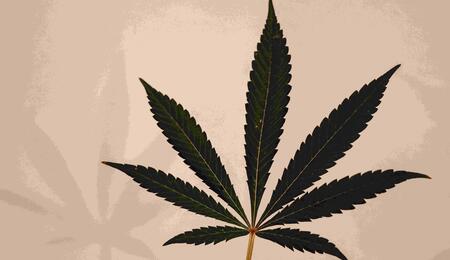Magical Molasses: Part I

Molasses, a chelating natural soil amendment, provides carbs, macro- and micro-nutrients and vitamins to your organic Cannabis plants.
Molasses, a chelating natural soil amendment, provides carbs, macro- and micro-nutrients and vitamins to your organic Cannabis plants.
Blackstrap molasses, a source of nutrition for people and plants [© Badagnani: WikiMedia Commons]
Gardeners in the early stages of their education learn that plants need a few basics in order to thrive: a substrate in which to grow, food and water, light and fresh air. You may now be ready to experiment with natural soil amendments, such as molasses. These are easily sourced and have been trusted for decades by horticulturists and agriculturists across the country. The purpose of this article is to clarify the most basic action of molasses in soil grows, so if you are a very advanced gardener, a hydro-only grower or looking for in-depth, scientific data, this is not the place for you.
Carbohydrates, trace minerals and chelation -- what molasses provides for Cannabis plants:
Commonly used and thus readily available in a variety of forms, from several sources, molasses can be found in natural food shops, the baking aisle of the supermarket, garden centers or feed stores. However, not all molasses is created equally. Brix Scale (sugar content) rating aside, the most beneficial type to apply to plants is organic, unsulfured blackstrap molasses. There is some argument within the cultivation community as to whether an organic label is worth pursuing; some non-organic varieties may contain high levels of preservatives or other unwanted ingredients that could affect the biological action within your soil.
You may have heard the adage 'feed the soil, not the plant'; while not a nutrient per se, molasses provides fast-acting sugars that feed the tiny living organisms in dirt, often called the 'micro herd'. Another benefit is chelation of the soil, which increases the mobility and availability of food within the plant and its roots by breaking down nutrients into usable and more easily accessible forms. Molasses is the perfect supplement for conditioning the soil and improving its structure, increasing moisture retention. Irrigating with blackstrap also helps to prevent salt build-up, nefarious pathogenic activity and nutrient leaching - in addition to bolstering the plant's vitality and defenses against infestation.
Blackstrap also contains macro- and micro-nutrients for healthy plant development and can be used to correct deficiencies. In addition to carbs, your plants may (depending upon both grade and brand) receive potassium, magnesium, calcium, iron, selenium, manganese, nitrogen, sulfur, vitamin B6 and copper, in a natural form. Potassium - in conjunction with phosphorous - enables plants to metabolize the healthy carb load delivered by the syrup.
Venezuelan sugar cane (Saccharum) harvested for processing [© Rufino Uribe: WikiMedia Commons]
How is molasses made?
Molasses is typically derived from either sugar beets or cane (and sometimes sorghum), which are refined to make commercial sugar; then, the waste materials from various rounds of sugar extraction are further processed into different grades of molasses. Molasses for human consumption is typically made from sugar cane; however, both cane and beet molasses may be used for certain horticultural purposes. Sorghum molasses does not provide the same nutritional benefits as the other two varieties.
Sugar cane roots penetrate past depleted top soils to an average depth of fifteen feet, accessing nutrient-rich dirt that imbues the plant with vital minerals. Canes are crushed and their juices extracted; this sugar-rich sap is boiled and centrifuged, drawing out the sucrose for crystallization into table sugar. The boil-and-spin method is repeated, allowing for varying grades of molasses as more and more sugar is removed.
The sweetest tasting molasses is a result of the first round of processing, which is why this mild, light-colored syrup is called 'first' molasses - 'second' molasses imparts a much stronger flavor to baked goods, etc. By the third round most of the sugar has been removed, thus 'third' or blackstrap molasses tastes the strongest and least sweet of the three; this viscous, brown-black syrup is filled with minerals that nourish both people and plants.
While most organic, unsulfured blackstrap molasses brands will certainly sustain your plants, different companies' products may bring forth varying results. Nutrient and vitamin levels between each grade or brand of molasses can fluctuate. Sulfur is commonly used as a preservative and also to process green, unripened sugar canes; sun-ripened canes produce unsulfured molasses.
Benefits of purchasing molasses over brand-name supplements:
Far less expensive than commercial nutrients, which often contain molasses as an ingredient, blackstrap can be used to supplement plants in the very most basic soil setups. Some gardeners just want to experiment with a few 'bag seeds'; using natural fertilizers is an easy and inexpensive way to experiment and learn how to grow. Using common gardeners' tricks helps to reduce the amount of trips needed to the local grow shop or garden center, in turn leaving less 'evidence' at home with the plants - for those who live in states without cultivation licenses. Fewer plastic bottles to purchase also means less recycling and natural products are often kinder - or even beneficial - to the environment.
Molasses can be used to naturally repel fire ants. [© Tyabji: WikiMedia Commons]
Another money-saving advantage to purchasing bulk molasses is that multipurpose applications may be possible, including lawn care, herbicidal action, fruit tree and vegetable garden maintenance, animal care, home brewing and distilling (especially rum) and pest control - molasses is famous for repelling fire ants. Blackstrap has long been trusted for human diets as an additional source of selenium, iron and B vitamins.
While other natural products (i.e., honey, sugar water, agave, etc.) do provide sugar to Cannabis, the carbohydrates may or may not be in the optimal form for plant uptake. These alternate forms of sugar also do not offer advantageous micro-nutrients, which molasses contains in varying - yet impressive - amounts.
Some gardeners argue that using molasses as an additive, particularly for the last few weeks of the flowering phase, promotes bud density and crystal production. You may meet growers who swear by molasses as either a general flavor enhancer, or as a means to control the developing taste of a particular strain.
No matter what brand you buy, ALWAYS research the ingredient list to ensure that you will not be overdosing or harming your plants. Research the production process and recipe of any additive with which you are not already familiar, and do your best to purchase such products locally, from a trusted source. Some growers refuse to take any product label at 'face value' and complete their own thorough fact-finding missions before applying anything to their precious plants.
Stay tuned for Part II, in which the basic dosage and methods of applying molasses to Cannabis are explored.



